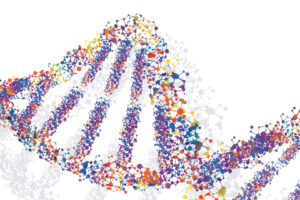It only takes a lump the size of a pea in your testicle to signal something serious.
It’s estimated that 8,850 American men will develop testicular cancer this year. It is most frequently diagnosed in men aged 20 to 34. And, like several other cancers, your best defense is a good offense in the form of self-examination.
What are the symptoms of testicular cancer?
The most common symptom is feeling a mass, which is why self-exam is so important for detection. You may feel a mass in your testicle or in the scrotal sac. Additionally, you may notice that a testicle is enlarged, experience pain in one of your testicles, or, in extreme cases, experience weight loss or night sweats or cough up blood.
What are the risk factors?
Unfortunately, testicular cancer develops fairly randomly, although having an undescended testicle may increase your risk for developing cancer in either testicle. If you were born with an undescended testicle, you can decrease your risk by having the testicle brought down surgically.
How do I perform a self-exam?
You should conduct a self-examination of your testicles monthly, so I encourage my patients to do it on the first of the month to make remembering a bit easier. You should begin performing self-exams at age 15. The optimum time is after a bath or shower, when the skin of the scrotum is relaxed.
To perform the exam:
- Hold your penis out of the way and check one testicle at a time
- Hold the testicle between your thumbs and fingers of both hands and roll it gently between your fingers
- Look and feel for any hard lumps or smooth rounded bumps or any change in the size, shape or feel of the testicles
It’s normal for one testicle to be slightly larger than the other and for one to hang lower than the other. And, each contains an epididymis, which can feel like a small bump on the upper or middle outer side of the testicle. This is normal.
Once you check your testicles regularly you’ll learn what’s normal for you and will be able to tell when something’s different. If you notice anything unusual, contact your physician.
What happens if cancer is detected?
If cancer is suspected, your physician will perform an ultrasound to confirm it. If the ultrasound appears suspicious, blood will be drawn to test for tumor markers to “stage” the cancer and determine how far it has progressed. You will need a CT scan of your chest, abdomen and pelvis for staging purposes. If you’re of child-bearing age, your doctor may recommend that you bank your sperm in case you wish to have children in the future, as some treatment options may affect fertility.
To treat testicle cancer, a surgeon will remove the affected testicle and implant a prosthetic silicon testicle, if desired. Your doctor also may recommend further treatment, such as chemotherapy, radiation or additional surgery.
Luckily, a testicular cancer diagnosis doesn’t always equal infertility. I treated a patient in his late 20s who was diagnosed with testicular cancer a few months before his wedding. He had surgery to remove the testicle and had a prosthetic one implanted. He enjoyed his wedding and honeymoon, and began chemotherapy when he returned. Fast forward a few years, and he and his wife have two children. He has routine X-rays to check for recurrence but has been disease-free since finishing treatment. He banked sperm just in case, but by all measures is living a “normal” life.
Launch your own offensive against testicular cancer by making self-exams part of your regular routine.
 Troy Sukkarieh, MD, is a board-certified urologic surgeon specializing in robotic and advanced laparoscopic surgery. He is on staff at CentraState Medical Center in Freehold and can be reached at Central Jersey Urology Associates by calling 866-CENTRA7.
Troy Sukkarieh, MD, is a board-certified urologic surgeon specializing in robotic and advanced laparoscopic surgery. He is on staff at CentraState Medical Center in Freehold and can be reached at Central Jersey Urology Associates by calling 866-CENTRA7.





